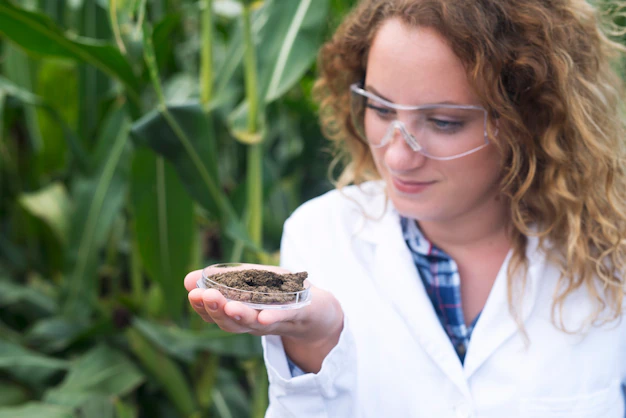- Role and Responsibilities: A soil scientist is a professional who studies soil composition, its properties, and its interactions with the environment. They analyze soil samples, conduct experiments, and gather data to assess soil quality, fertility, and its suitability for different purposes such as agriculture, construction, or environmental conservation.
- Education and Qualifications: To become a soil scientist, a minimum of a bachelor’s degree in soil science, agronomy, or a related field is usually required. Advanced positions or research roles may require a master’s or Ph.D. degree in soil science.
- Fieldwork and Laboratory Work: Soil scientists often spend time in the field collecting soil samples, conducting soil surveys, and studying soil profiles. They may also perform laboratory analysis on soil samples to determine their composition, nutrient content, pH level, and other properties.
- Environmental Impact Assessment: Soil scientists play a crucial role in assessing the environmental impact of various activities such as agriculture, land development, and industrial processes. They evaluate soil erosion, contamination risks, and the potential for soil rehabilitation and conservation.
- Soil Classification and Mapping: Soil scientists classify and map soils based on their physical, chemical, and biological properties. This information helps in land-use planning, determining suitable crops, and managing soil resources effectively.
- Crop and Plant Nutrition: Soil scientists provide recommendations for optimal crop and plant nutrition based on soil analysis. They assess nutrient deficiencies, recommend fertilizers, and develop strategies to improve soil fertility and productivity.
- Environmental Remediation: Soil scientists contribute to the remediation of contaminated soils caused by industrial spills, mining activities, or improper waste disposal. They develop remediation plans and monitor the effectiveness of soil rehabilitation measures.
- Research and Development: Soil scientists often engage in research and development activities to expand knowledge in the field. They may investigate new techniques for soil analysis, develop sustainable soil management practices, and explore the impact of climate change on soil health.
- Collaboration and Communication: Soil scientists collaborate with other professionals such as agronomists, environmental scientists, and engineers to address soil-related challenges. They communicate their findings to policymakers, farmers, and landowners, providing recommendations for sustainable soil management practices.
- Career Opportunities: Soil scientists can find employment in various sectors, including government agencies, environmental consulting firms, research institutions, universities, and agricultural companies. They may work as soil surveyors, research scientists, consultants, educators, or policymakers, contributing to soil conservation and sustainable land management efforts.
Join 'Farmers Mag' WhatsApp Channel
Get the latest Farming news and tips delivered straight to your WhatsApp
CLICK HERE TO JOIN






